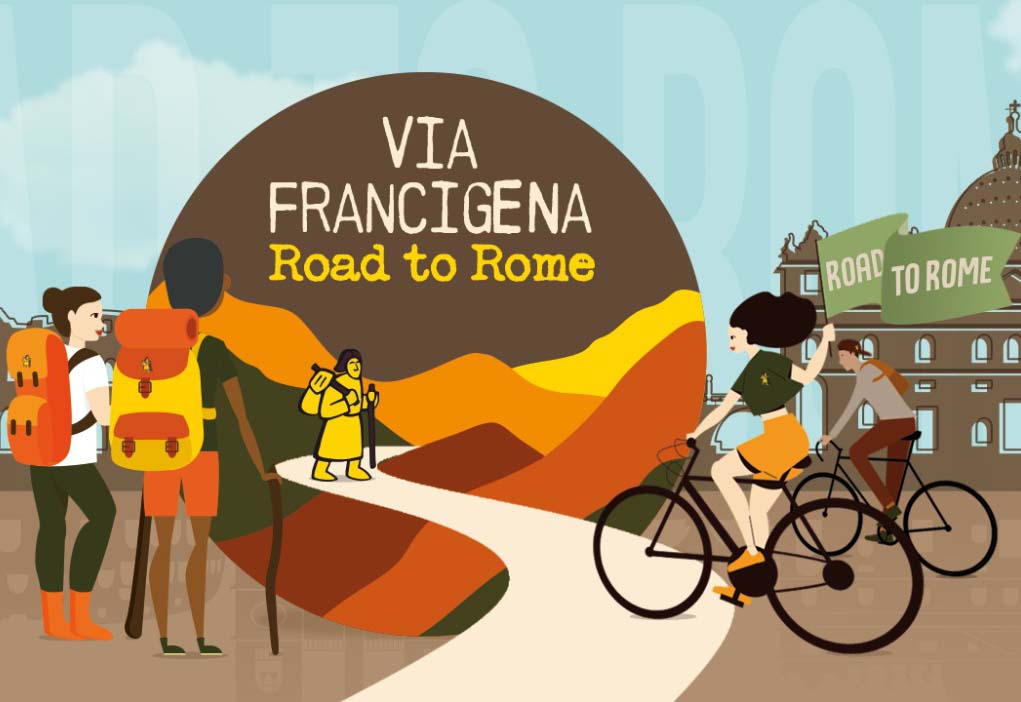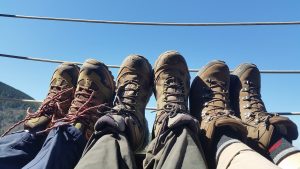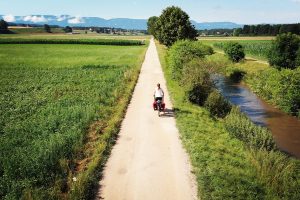Walking with your children along a historical or nature trail can be an incredible experience, but it requires proper preparation.
🗣️ We talked about it with Rita Mele, a traveling mom and content creator of the social media page @ipassidiauri_travelfamily, where she shares with her community the walks and adventures she lives with her family.
Drawing from her own experience, Rita offers practical advice and useful tips to enjoy a walk with children in a calm, safe, and emotionally rich way for the whole family.

Let’s dive into the tips! 👇
1. Choose the right route 🗺️
Not all trails are suitable for children. It’s important to consider:
🚶♂️ Distance and duration: start with a short route (between 80 and 150 km) that can be completed in 7–10 days.
⛰️ Terrain and difficulty: avoid routes with excessive elevation gain or overly remote sections.
🏠 Availability of services: choose trails with food stops, pharmacies, and accommodations reasonably spaced.
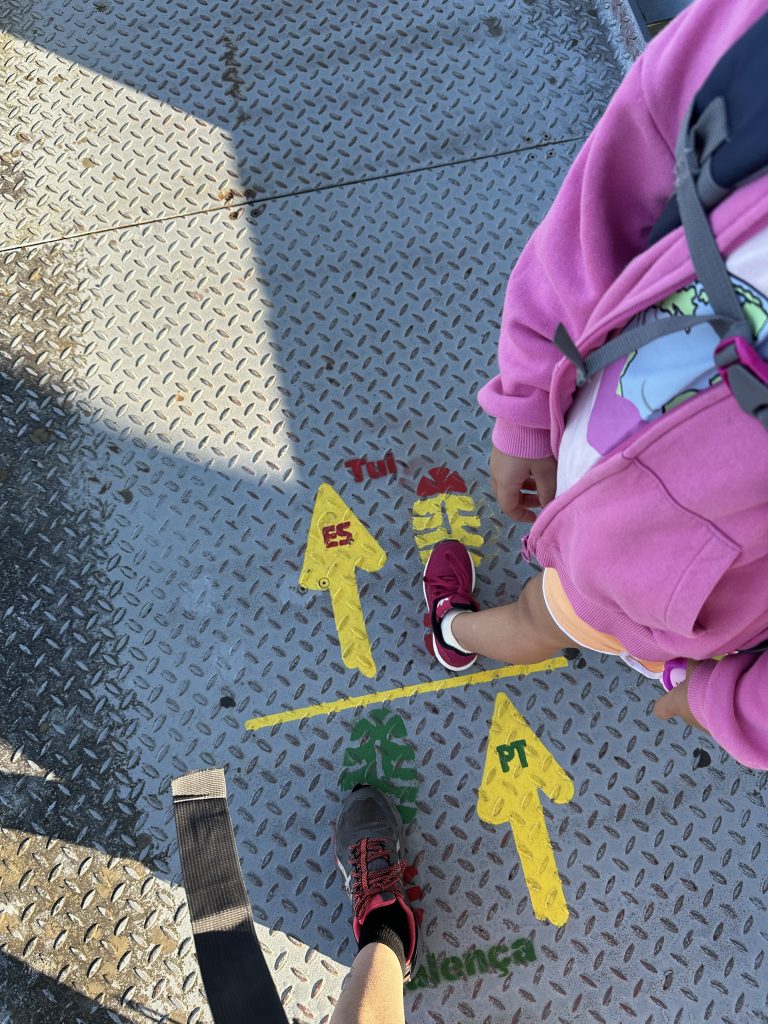
❗️If it’s your child’s first long walk, opt for a route with short, easy stages.
2. Physical and mental preparation
Even though children are full of energy, walking long distances day after day can be demanding. It’s helpful to:
🏃♂️ Train beforehand by gradually increasing walking distances. Walking 8–10 km a day for a few weeks helps test their endurance.
🗺️ Involve them in the preparation, explaining the walk, its history, and what they’ll see along the way.
🥾 Do trial hikes, preferably with a backpack, so they get used to carrying a bit of weight.
3. The perfect backpack: what to bring ⁉️
Packing light is key, but when walking with children, you’ll need some essentials:
🎒 Ergonomic backpack: for younger children, consider a backpack with a hip seat or shoulder carrier for rest breaks.
🧢 Comfortable technical clothing, breathable and weather-appropriate (light sweater, rain jacket, hat).
🥾 Well-tested shoes with good cushioning. Avoid brand-new shoes!
🩹 First-aid kit with band-aids, disinfectant, sunscreen, insect repellent.
🍫 Energy snacks: dried fruit, bars, cookies—for low-energy moments.
💦 Water bottle or hydration pack, as kids dehydrate easily.
4. Adjust the pace to children’s needs
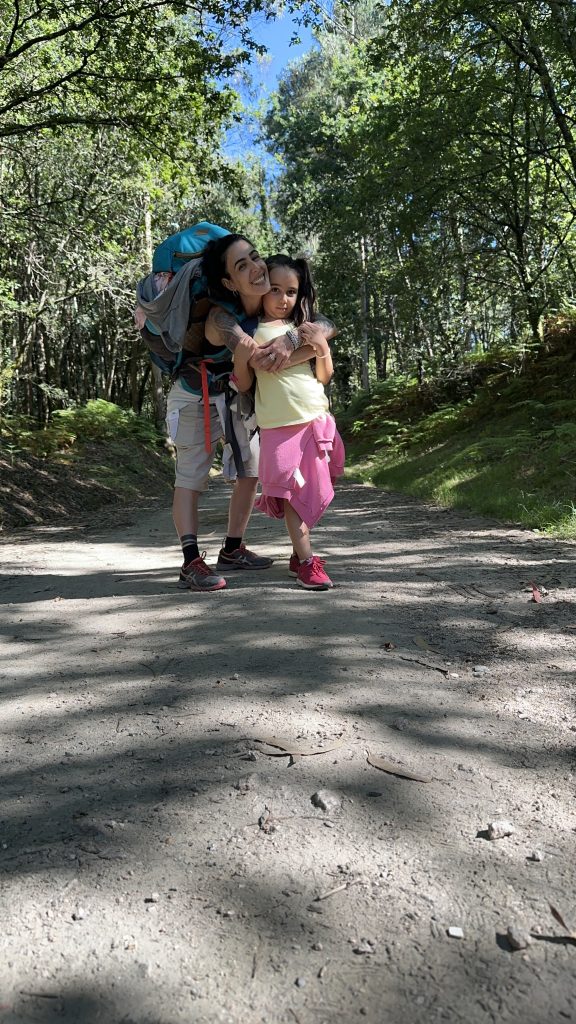
An adult can walk for hours nonstop, but with children, you should:
🚶♀️ Take short stages, between 10 and 15 km a day. If the child is older or used to walking, you might reach 20 km – but don’t overdo it.
⏸️ Plan frequent breaks – every hour or every 2–3 km – to rest and hydrate.
🎲 Add playtime, tell stories, observe nature, or invent mini-challenges to make the walk more fun.
5. Eat and sleep well 💤
Children need more rest than adults, so:
🏩 Choose comfortable accommodations: if possible, avoid overcrowded hostels. A guesthouse or small inn may be a better option.
🍲 Provide balanced meals with carbs and proteins to support their physical effort.
6. Handling difficult moments 😩
There will be moments of tiredness, boredom, or mood swings. Some strategies to overcome them:
🎯 Motivate with short-term goals: “Let’s reach that fountain, then we’ll take a break!”
🎨 Create rituals: draw a shell (or another symbol) in a notebook each day, collect a special stone at each stage, etc.
🔁 Be flexible: if your child is too tired one day, shorten the walk or stop early.
7. Enjoy the experience 🌟
A walk isn’t just a physical challenge – it’s a chance to spend time together, discover new places, and make memories. It’s not about how far you go, but how you live the experience.
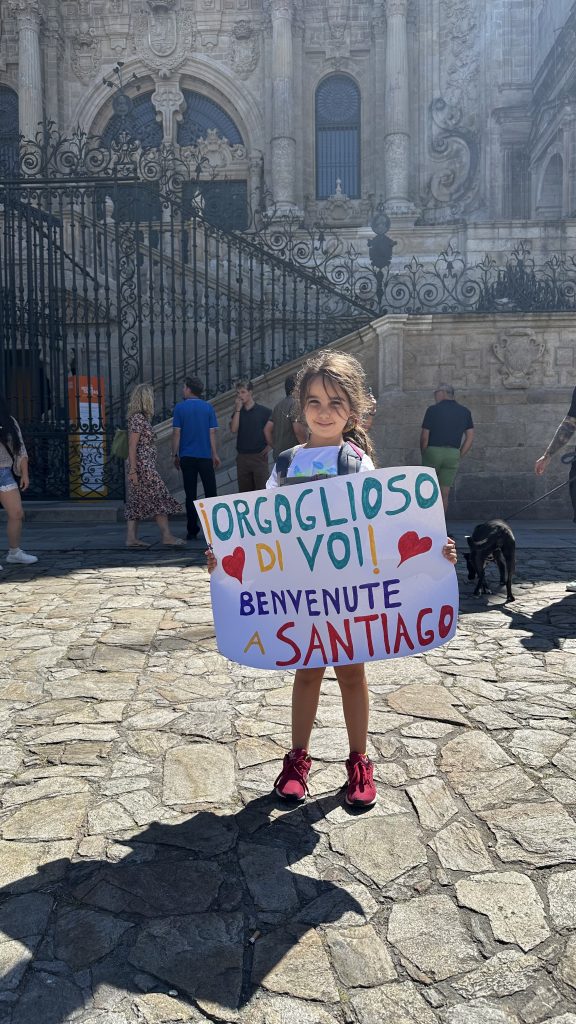
Walking with children is a unique adventure, with the right preparation, it can become an unforgettable moment for the whole family.
👉🏻 The AEVF Team also has some useful tips for those setting off with little ones: check them out at this LINK and… Buon cammino! 🥾






